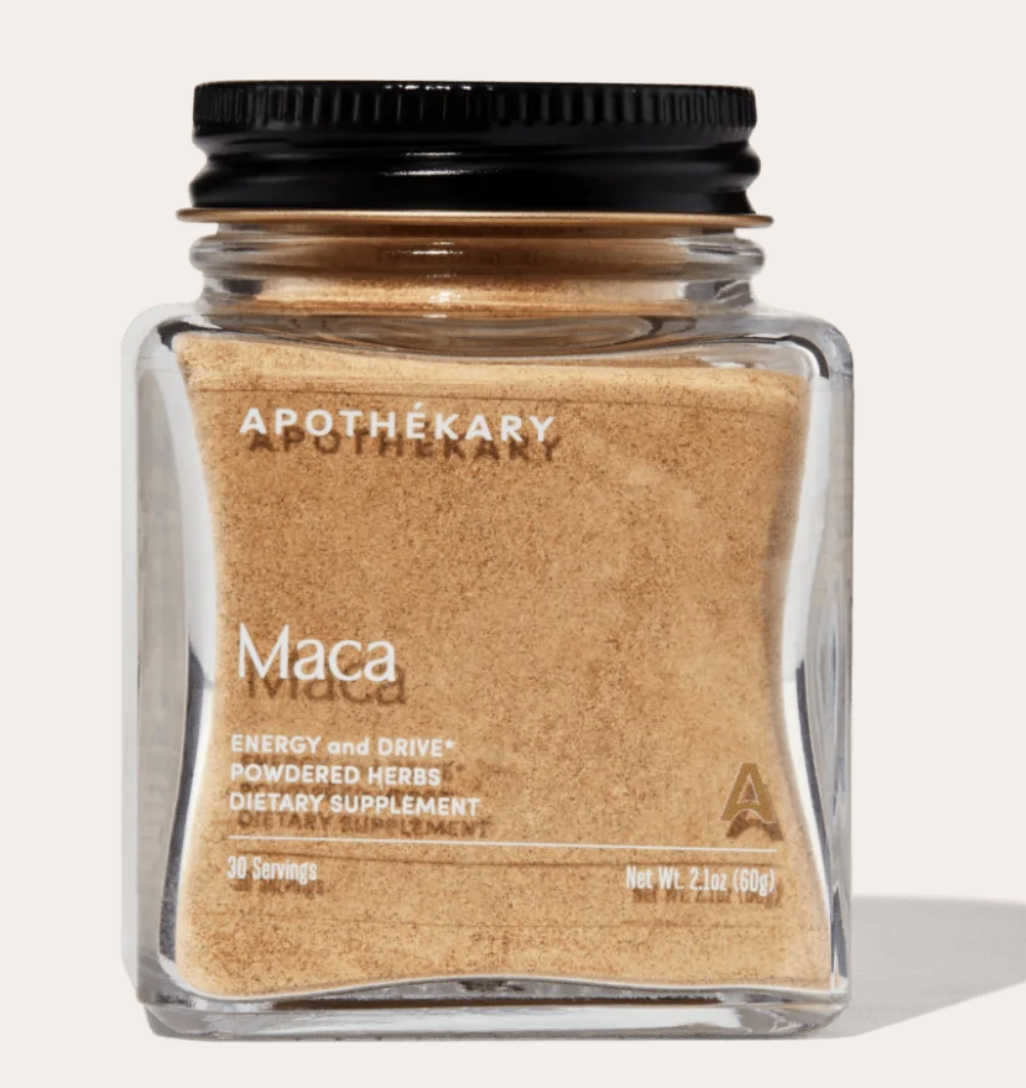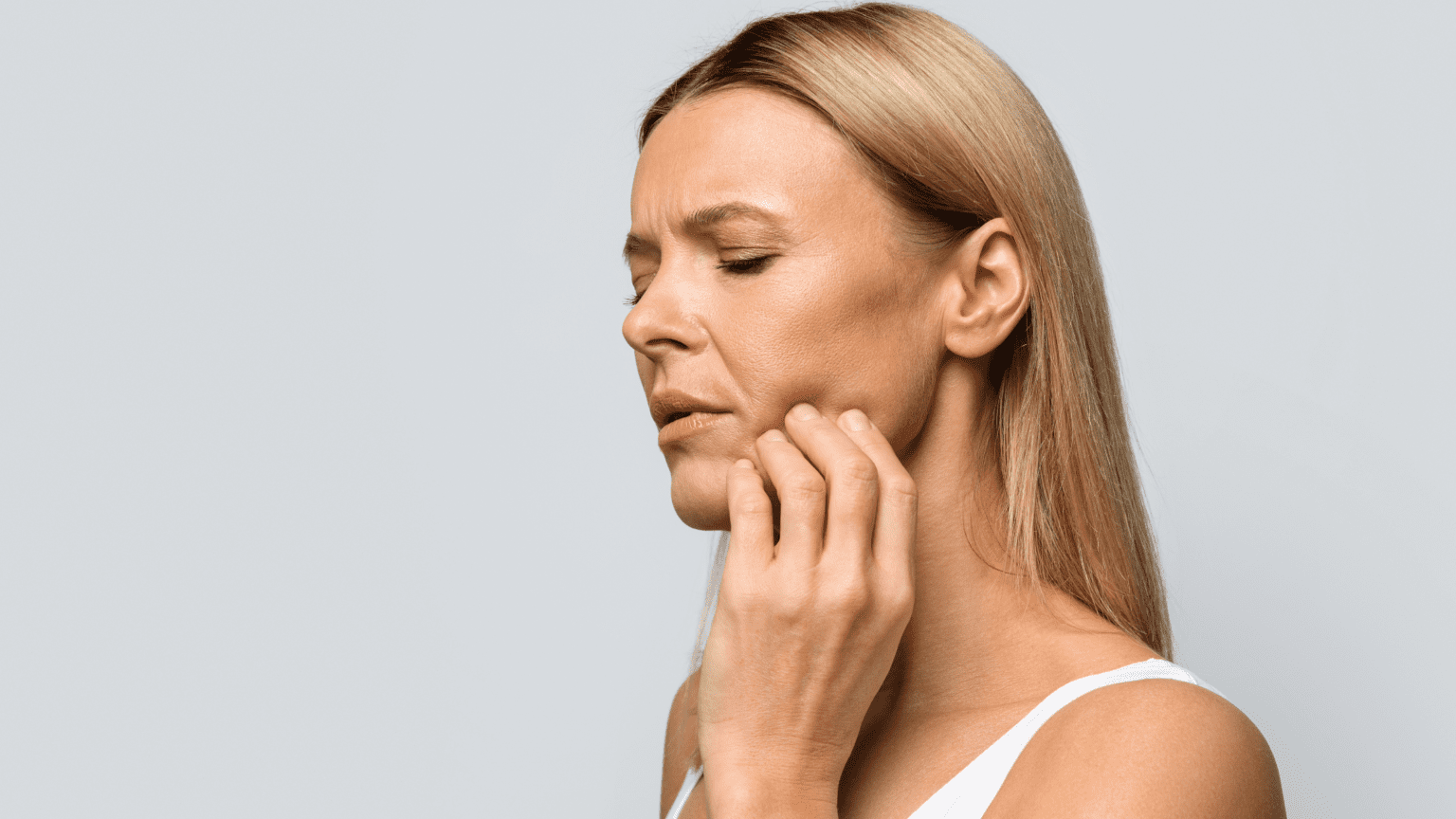Burning Mouth Syndrome (BMS) is a painful condition that affects many women during menopause. Burning feelings in the mouth can be a painful and frustrating condition that can make it difficult to eat, drink, and speak. BMS is characterized by a burning sensation in the mouth that can last for hours, days, or even weeks. The cause of BMS is not well understood, but it is believed to be related to hormonal changes that occur during menopause.
Women who experience BMS may also experience other symptoms such as dry mouth, mouth pain, taste disturbance, burning tongue or tip of the tongue (or roof of the mouth), tingling, and numbness. These symptoms can be very uncomfortable and can make it difficult to enjoy everyday activities. It is important for women to seek medical attention if they are experiencing these symptoms, as there are treatment options available that can help manage the condition.
Understanding the relationship between menopause and BMS is important for women who are experiencing these symptoms. By learning more about the condition and its causes, women can take steps to manage their symptoms and improve their overall quality of life. In this article, we will explore the causes of BMS, its symptoms, and the treatment options available to women who are experiencing this condition during menopause.
Key Takeaways
- Burning Mouth Syndrome is a condition that affects many women during menopause and is characterized by a burning sensation in the mouth.
- Women who experience BMS may also experience other symptoms such as dry mouth, tingling, and numbness.
- Understanding the relationship between menopause and BMS is important for women who are experiencing these symptoms, as there are treatment options available that can help manage the condition.
Understanding Burning Mouth Syndrome
Burning Mouth Syndrome (BMS) is a condition characterized by a burning sensation in the mouth, tongue, and/or lips. It is a complex condition that affects a significant number of people, particularly women, and can be difficult to diagnose and treat. This section will provide an overview of the symptoms, etiology, and risk factors associated with BMS, as well as its prevalence in menopausal women.
Symptoms and Diagnosis
The symptoms of BMS typically include a burning or scalding sensation in the mouth, tongue, and/or lips. Some individuals may also experience tingling, numbness, or a metallic taste in the mouth. In some cases, individuals may also experience a loss of taste or dry mouth.

Diagnosis of BMS can be challenging as there are no specific tests or diagnostic criteria for the condition. Diagnosis is usually made based on the individual’s symptoms, medical history, and a physical examination of the oral mucosa. In some cases, additional tests such as blood tests or imaging studies may be ordered to rule out other possible causes of the symptoms.
Cause and Risk Factors
The exact cause of BMS is unknown, but it is thought to be multifactorial and may involve a combination of physical, psychological, and/or neurological factors. Some of the known risk factors for BMS and possible cause include hormonal changes, stress, anxiety, depression, and certain medications.
BMS has also been associated with other conditions such as xerostomia (dry mouth) and stomatodynia (oral pain). Additionally, some research suggests that BMS may be related to changes in the oral microbiome.
Burning Mouth Syndrome in Menopausal Women
BMS is more commonly diagnosed in women, particularly postmenopausal women. The hormonal changes associated with menopause may contribute to the development of BMS in some women.
In menopausal women, BMS may be accompanied by other menopause symptoms such as hot flashes, mood changes, and sleep disturbances. Treatment for BMS in menopausal women may involve hormone therapy, as well as other medications and lifestyle changes.

Go With the Flow
Go With The Flow is a 100% plant-based supplement that supports you by providing menopause relief through herbal remedies.
Overall, BMS is a challenging condition that can significantly impact an individual’s quality of life. Proper diagnosis and management of the condition are essential for improving symptoms and overall well-being.
Treatment and Management Options
Burning Mouth Syndrome (BMS) is a condition that can be challenging to diagnose and treat. However, there are several treatment and management options available that can help alleviate the symptoms.
Medication and Therapies
There are several medications and therapies that can help manage BMS symptoms. Capsaicin, a compound found in chili peppers, has been shown to be effective in reducing pain and discomfort associated with BMS. It works by desensitizing the nerves in the mouth, reducing the sensation of pain. Other medications, such as antidepressants and anticonvulsants, can also be used to manage BMS symptoms. These medications work by altering the levels of neurotransmitters in the brain, which can help reduce pain and discomfort.
Cognitive Behavioral Therapy (CBT) is another therapy that can be effective in managing BMS symptoms. CBT is a type of therapy that focuses on changing negative thought patterns and behaviors. It can help individuals with BMS learn coping mechanisms and techniques to manage their symptoms.
Lifestyle and Home Remedies
Lifestyle changes and home remedies can also be effective in managing BMS symptoms. Avoiding spicy, acidic, or hot foods and beverages can help reduce pain and discomfort. Drinking plenty of water and staying hydrated can also help alleviate symptoms. Using a saliva substitute or chewing sugar-free gum can help stimulate saliva production, which can help reduce dry mouth symptoms.
Acupuncture is another alternative therapy that may be effective in managing BMS symptoms. Acupuncture involves the insertion of fine needles into specific points on the body. It is thought to work by stimulating the body’s natural pain-relieving mechanisms.
Hormone Replacement Therapy
Hormone Replacement Therapy (HRT) may be an effective treatment option for women experiencing BMS symptoms related to menopause. HRT involves the use of estrogen to replace the hormones that the body is no longer producing. Estrogen can help reduce dry mouth symptoms and improve overall oral health.
Pharmacotherapeutic management can also be effective in managing BMS symptoms. The use of topical medications, such as lidocaine or benzocaine, can help reduce pain and discomfort associated with BMS. These medications work by numbing the nerves in the mouth, reducing the sensation of pain.
There are several treatment and management options available for individuals with Burning Mouth Syndrome. These options include medication and therapies, lifestyle changes and home remedies, and hormone replacement therapy. It is important for individuals with BMS to work closely with their healthcare provider to determine the best treatment plan for their individual needs.
Impact of Menopause on Oral Health
Menopause is a natural biological process that marks the end of a woman’s reproductive years. During this time, hormonal changes occur that can affect various aspects of a woman’s health, including her oral health. In this section, we will explore the impact of menopause on oral health and discuss some of the symptoms that menopausal women may experience.
Hormonal Changes and Oral Symptoms
One of the primary ways that menopause can affect oral health is through hormonal changes. As estrogen levels decline during menopause, women may experience a range of oral symptoms, including dry mouth, burning mouth syndrome, and oral thrush. Dry mouth, or xerostomia, occurs when the salivary glands produce less saliva than usual. This can lead to a range of oral health problems, including tooth decay, gum disease, and bad breath.

Hormone Happy
Contains a powerful blend of plant extracts shown to relieve symptoms of menopause.
It can also cause a metallic taste in the mouth and a dry, sore throat. Although the exact cause of burning mouth syndrome is unknown, hormonal changes during menopause are thought to be a contributing factor.
Oral thrush is a fungal infection that can occur when the balance of bacteria in the mouth is disrupted. Menopausal women may be more susceptible to oral thrush due to changes in their hormonal balance.
Saliva and Oral Environment During Menopause
Another way that menopause can affect oral health is through changes in the saliva and oral environment. Saliva plays an essential role in maintaining oral health by rinsing away food particles, neutralizing acids, and providing a protective barrier against bacteria. However, hormonal changes during menopause can alter the composition of saliva, making it less effective at performing these functions.
In addition to changes in saliva, menopausal women may also experience changes in their oral environment. For example, gum disease may become more common due to changes in the immune system and hormonal changes that affect the gums. Neuropathy, or nerve damage, may also occur, leading to numbness or tingling in the mouth.
Overall, menopause can have a significant impact on oral health, and menopausal women should be aware of the potential symptoms and risks. Regular visits to the dentist can help to identify and address any oral health problems that may arise.
Associated Conditions and Complications
Burning Mouth Syndrome (BMS) is a condition that affects many women during menopause. While the exact cause of BMS is unknown, several factors have been identified that may contribute to its development. In addition to hormonal changes, there are several associated conditions and complications that may increase the risk of developing BMS.
Psychological Factors
Psychological factors such as anxiety, depression, and stress have been linked to BMS. Women who experience these conditions may be more likely to develop BMS or experience more severe symptoms. Some studies have suggested that stress may directly contribute to the development of BMS by increasing inflammation in the mouth.
Nutritional Deficiencies and Oral Diseases
Nutritional deficiencies such as iron, zinc, and vitamin deficiencies have also been associated with BMS. Women who are deficient in these nutrients may be more likely to develop BMS or experience more severe symptoms. Oral diseases such as oral thrush and lichen planus have also been linked to BMS.
It is important to note that while these conditions may increase the risk of developing BMS, they do not necessarily cause the condition. Women who experience these conditions should be aware of the potential risk of developing BMS and seek medical attention if they experience symptoms.
In addition to the conditions mentioned above, other conditions that have been linked to BMS include diabetes, fibromyalgia, and Parkinson’s disease. Women who have these conditions may be more likely to develop BMS or experience more severe symptoms. It is important for women to discuss any concerns or symptoms with their healthcare provider to determine the best course of treatment.
Prevention and Prognosis
Avoiding Aggravating Factors
Preventing Burning Mouth Syndrome (BMS) during menopause can be challenging, but there are several steps that can be taken to avoid aggravating factors. It is important to avoid alcohol and tobacco, which can irritate the mouth and worsen symptoms. Additionally, acidic and spicy foods should be avoided, as they can trigger discomfort and pain. Stress can also be a factor in BMS, so it is important to manage stress levels through relaxation techniques such as yoga or meditation.
Long-Term Outlook
The long-term outlook for BMS during menopause varies from person to person. In some cases, symptoms may go away on their own after a few months, while in others, they may persist for years. However, there are several strategies that can help improve quality of life for those with BMS.
Maintaining good oral hygiene is important, as it can help reduce discomfort and prevent infections. Additionally, using mouthwashes or sprays that contain numbing agents can provide temporary relief from pain. In some cases, medication may be prescribed to help manage symptoms. It is important to work closely with a healthcare provider to develop a treatment plan that is tailored to individual needs.

While there is no cure for BMS during menopause, there are several strategies that can help improve quality of life and manage symptoms. By avoiding aggravating factors and working closely with a healthcare provider, those with BMS can find relief and improve their long-term outlook.
Frequently Asked Questions
What treatments are available for burning mouth syndrome during menopause?
There are several treatment options for burning mouth syndrome during menopause. Hormone replacement therapy (HRT) may be recommended to balance hormone levels and alleviate symptoms. Other treatments may include the use of topical anesthetics, such as lidocaine, or medications to manage underlying conditions, such as antidepressants or anticonvulsants.
Are there specific mouth symptoms associated with menopause?
Yes, there are several mouth symptoms associated with menopause. These may include dry mouth, altered taste sensations, burning or tingling sensations, and an increased risk of oral infections.
How does perimenopause affect the tongue?
Perimenopause, the transitional period leading up to menopause, may affect the tongue by causing burning or tingling sensations, altered taste sensations, or dry mouth.
Can menopause cause recurrent mouth ulcers, and how are they treated?
Menopause may increase the risk of recurrent mouth ulcers, also known as aphthous ulcers. Treatment options may include topical or systemic oral medications to manage pain and inflammation, as well as lifestyle changes to reduce triggers, such as stress or certain foods.
What are the potential dangers of burning mouth syndrome?
While burning mouth syndrome is not typically a serious condition, it can significantly impact quality of life and may be associated with underlying medical conditions, such as diabetes or vitamin deficiencies. Additionally, prolonged use of certain medications or treatments may have potential side effects.
Which medications are known to cause symptoms of burning mouth syndrome?
Several medications are known to cause symptoms of burning mouth syndrome, including some antidepressants, antipsychotics, and blood pressure medications. It is important to discuss any concerns or symptoms with a healthcare provider to determine the best course of treatment.

Apothekary Maca
Maca’s nutrient profile is impressive. It contains ample amounts of copper, vitamin C, and potassium–all essential nutrients for mood and energy.










